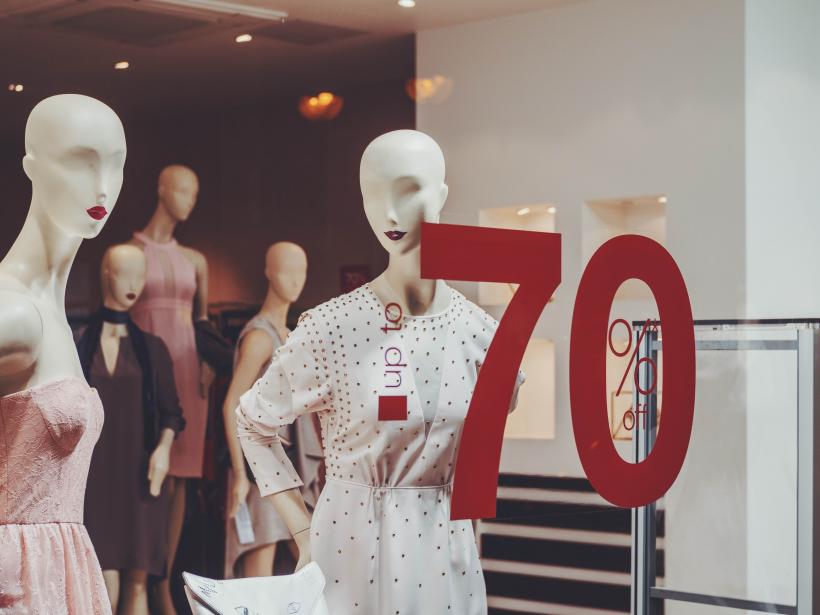
You should know better than to market sizes to XXL as “all shapes and sizes” or “clothes for every person.”
Jenn Dee was excited to see the “Buy 1 get 1 50% off Women’s Swimwear” sale at Forever 21. But when Jenn went onto the website, she learned that though she was trying to purchase swimwear, and she is a woman, her suit was not included in the sale because she is a plus-size woman. She wrote to the company, who said they “sympathize with your disappointment…we understand wanting to save where we can.” Confronted with a serious issue regarding diversity and inclusion, Forever 21 decided to go with patronizing the customer who took the time to do them the courtesy of pointing out their error.
What Forever 21 failed to address is that their marketing tells us they don’t consider plus-size women to be women.
They aren’t the only ones. Companies like Fabletics specifically brand themselves as clothing for “all shapes and sizes” then stop at a size 22, leaving those of us above a 22 to wonder — do they not consider us a shape? A size? A person at all? (When I reached out to them about this, they asked me if I was interested in their blogger program, so it appears that, unlike their clothing, their marketing problems run wide and deep.)
I was further contemplating this problem when I saw an ad for Bonobos Mens’ Clothing. The ad included diverse men, but not many fat men — and very fat men were not represented at all. The ad ended with the tagline, “Clothes for every man.” Hoping that I was wrong, I headed to their website. I was not wrong. The sizes only go up to about an XXL. There are plenty of men who are larger than 2XL, so what is Bonobos saying about them? That they aren’t really men? Or that Bonobos — a company built upon the idea of providing clothes for every man — just doesn’t give a shit about the fat ones?
If you’ve ever paid $30 for a thin, plain cotton tank top, then you are well aware that the Fat Tax is real — and it’s painful. What’s also painful is the complete erasure of fat people by clothing companies. It hurts when clothing companies tout their refusal to sell plus-size clothes as proof that they are “hip” and “cool.” It hurts when companies whose clothes we like refuse to sell plus sizes at all. Or when companies like Old Navy offers plus sizes but only online (effectively conveying the message, “We’ll take your money, but keep your fat ass out of our stores.”) Or when companies like Forever 21 sell clothes for us while completely erasing us in their marketing.
You Might Also Like: How Access To Plus-Size Fashion Changed (And Saved) My Life
But, for my fat money, the most painful thing is when companies co-opt the language of Size Acceptance while knowing good and damn well that they aren’t Size Inclusive. This is where the excuses start, so let’s cover them now:
1. “But, we are just starting out, we’ll add larger sizes later.”
Well, then you should change your tagline to be “clothing for some smaller shapes and sizes” until you get that done.
2. “Plus sizes are more expensive. We can’t offer the same sales for straight and plus sizes.”
Actually, you could. You just need to either make a little less on plus size clothes or charge a little more for straight size clothes, but that’s an article for another day. “Women” and “plus” should not be two separate categories, as if plus size women are some different species. Call it women 0-12 and women 14-the largest size you offer or straight sizes and plus sizes. If you’re uncomfortable sending out a marketing flyer that says “Sale on Swimsuits from everyone size 14 and smaller” (and you should be) then fix it. While you’re at it, switch to gender-neutral labels that are gender inclusive.
3. “But plenty of lines don’t offer anything at all — you don’t know what we went through to get up to XXL.”
While I have a pretty good idea, I’ll concede the point and say I don’t actually know. I also don’t care. I mean, I appreciate you carrying a size larger than most places, but you know that there are people way bigger than an XXL. You should know better than to market sizes to XXL as “all shapes and sizes” or “clothes for every person.”
The fashion world has long screwed up when it comes to fat bodies. Fixing that is a process that will take time. Still, it’s not impossible. Companies like SmartGlamour exist and make clothes for literally every human being.
For the time being, the least companies can do is be honest in their marketing so that fat people don’t get their hopes up only to learn that yet another company is co-opting inclusive language at their expense.








